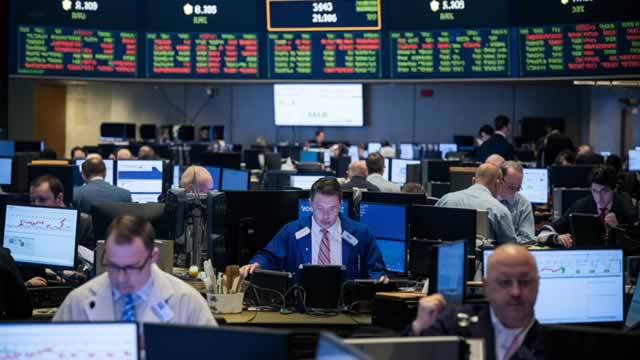Stock Market Volatility: A Rocky Week and Ray Dalio’s Insights
The past week in the stock markets has been a rollercoaster ride, with significant fluctuations following policies implemented by various governments. One of the most notable developments was the announcement of a 145% tariff raise on China’s imports of certain goods by the United States.
Impact on the Stock Markets
The announcement sent shockwaves through the financial world, leading to a sharp decline in stock prices across the board. The Dow Jones Industrial Average, for instance, dropped by over 800 points in a single day. Other major indices, such as the S&P 500 and the Nasdaq Composite, also experienced significant losses.
Ray Dalio’s Perspective
Ray Dalio, the renowned investor and founder of Bridgewater Associates, weighed in on the situation in a recent interview. He expressed his belief that the current market volatility is a natural response to the ongoing trade tensions between the US and China. According to Dalio:
“What we’re seeing in the markets is a reflection of the uncertainty surrounding the trade situation between the US and China. The markets don’t like uncertainty, and until we have some clarity on the issue, we can expect continued volatility.”
Effect on Individuals
For individual investors, the recent market volatility can be a source of anxiety. Those with large stock holdings may see their net worth decrease significantly in a short period of time. However, it’s essential to remember that the markets have historically recovered from similar situations. As Dalio noted:
“It’s important for investors to keep a long-term perspective. While market volatility can be unsettling, it’s a normal part of the investment process. Those who are well-diversified and have a solid financial plan in place should remain calm and not make hasty decisions based on short-term market movements.”
Effect on the World
The impact of the current trade tensions and resulting stock market volatility goes beyond just the financial world. Economically, the tariffs could lead to increased costs for businesses and consumers, potentially slowing down global economic growth. Politically, the situation could further strain relations between the US and China, potentially leading to more significant geopolitical consequences.
Conclusion
In conclusion, the recent stock market volatility following the announcement of increased tariffs on China is a reminder of the uncertainty that comes with global trade tensions. While the situation can be unsettling for individual investors, it’s essential to maintain a long-term perspective and stay calm. Ultimately, the markets will continue to fluctuate based on the ebb and flow of geopolitical developments. As investors, it’s our job to stay informed and adapt to these changes as best we can.
- Stock markets experienced significant volatility following the announcement of increased tariffs on China.
- Ray Dalio, founder of Bridgewater Associates, weighed in on the situation, expressing his belief that uncertainty surrounding the trade situation is driving market volatility.
- Individual investors should maintain a long-term perspective and not make hasty decisions based on short-term market movements.
- The impact of the trade tensions goes beyond just the financial world, potentially leading to increased costs for businesses and consumers and strained geopolitical relations.





